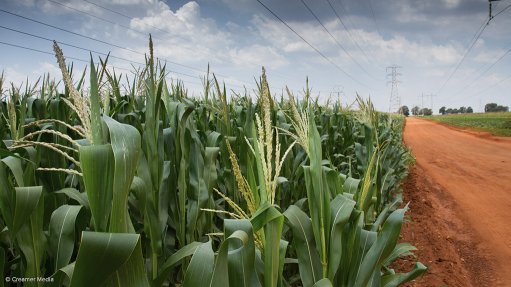
Photo by: Duane Daws
President Jacob Zuma’s announcement during the State of the Nation Address (SoNA) on Thursday night has created “doubt and concern within agriculture” in terms of whether government is serious about consultation around land reform, said South African agricultural industry association Agri SA on Friday.
“President Zuma’s references to agriculture and agricultural land in the [SoNA] serve as further example of utterances that undermine confidence [in South Africa] and have a detrimental impact on the economy.”
Agri SA said the President’s statement deviated radically from understandings it believed had been reached during engagement with Minister of Rural Development and Land Reform Gugile Nkwinti at its yearly congress in October, where the Minister welcomed organised agriculture’s inputs on land reform and had envisaged a timeframe for interaction on the subject.
At the congress, Nkwinti explained that he had been tasked by Zuma to coordinate Outcome 7 of the prevailing Medium-Term Strategic Framework, which was based on Chapter 6 of the National Development Plan (NDP) and dealt with comprehensive rural development, and proposed that Agri SA’s technical task team on land reform join his inter-Ministerial task team.
However, during the SoNA, Zuma announced the introduction of a 12 000 ha land ceiling, that foreigners would be deprived of owning land in South Africa – instead leasing it, the introduction of the Office of the Valuer General to signal the end of the so-called "willing buyer, willing seller" principle, and the introduction of the 50/50 farmworker equity and comanagement scheme on a pilot basis.
“It creates the impression that populist statements in this case weigh heavier with government than sustained food production and economic development. When decisions of this nature are taken, it also [raises the question] whether the objectives and points of departure of the NDP [which targets the creation of one-million agricultural-sector jobs by 2030] are still relevant,” Agri SA averred.
“It is especially the land ceilings, and 50/50 farmworker equity and comanagement scheme, and deprivation of foreign landownership that run contrary to the letter and spirit of the land reform model proposed by the NDP. These contradictions are cause for concern,” Agricultural Business Chamber (Agbiz) CEO John Purchase emphasised in a statement on Friday.
Agbiz noted that there was a far better and more effective way to implement sustainable and significant land reform in South Africa to benefit the whole of society, highlighting that, in conjunction with partners, it had developed a proposal for the commercial financing of land reform, in line with the NDP’s land reform model, to speed up the process.
Purchase explained that while little detail existed on how government intended to roll out its controversial land reform measures, the chamber would engage with government on the legislation drafting process to assess the impact these measures would have on business confidence and the investment climate in the sector, and, ultimately, on the country’s growth, employment and food security.
Agbiz would also attempt to alleviate the negative consequences these announced measures would have on the industry through engagement with government and other stakeholders.
The chamber reiterated that it did not support the policy of limitations to landholdings in an open land market; as such an action invariably compromised the principle of a competitive and efficiency-driven agro-food system that ensured food security for South Africa.
“If you compromise on this accepted economic principle, the setting of so-called bands or ceilings becomes arbitrary, and such decisions are then ultimately taken by government, at [its] whim, with potentially dire consequences. But it is not just an important economic principle that would be compromised – the effective practical implementation and effect thereof is highly questionable,” stressed the chamber.
Agri SA would also seek “urgent clarification” from government regarding the interpretation of the relevant proposals and on how it envisaged the implementation thereof, bearing in mind government’s limited funding and capacity.
The organisation would also consider steps to test the legality of the proposals, which, at face value, could be unconstitutional. “The organisation will continue to hold discussions with government in this regard, including inputs to Minister Nkwinti’s interdepartmental task team.”